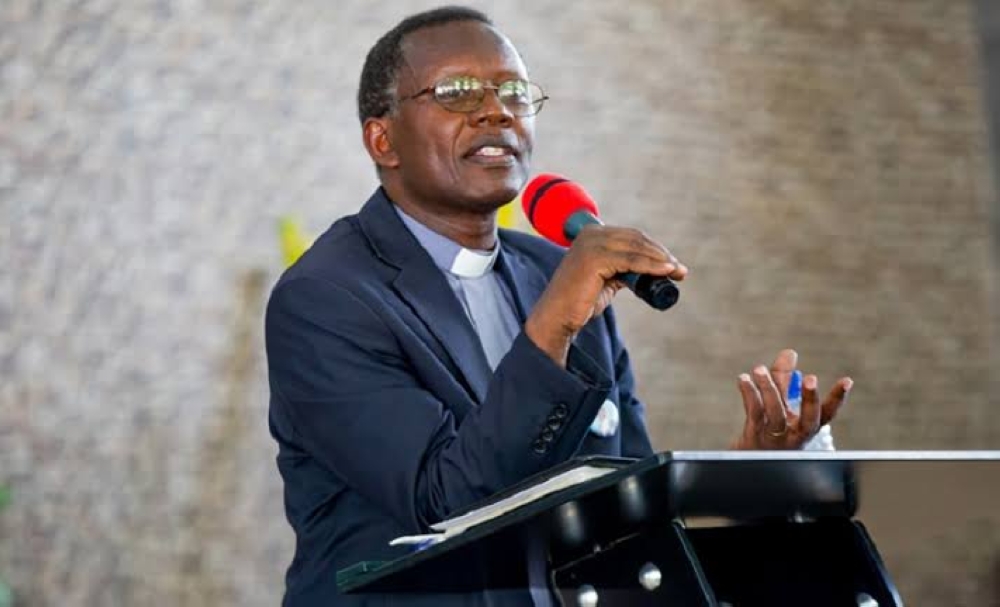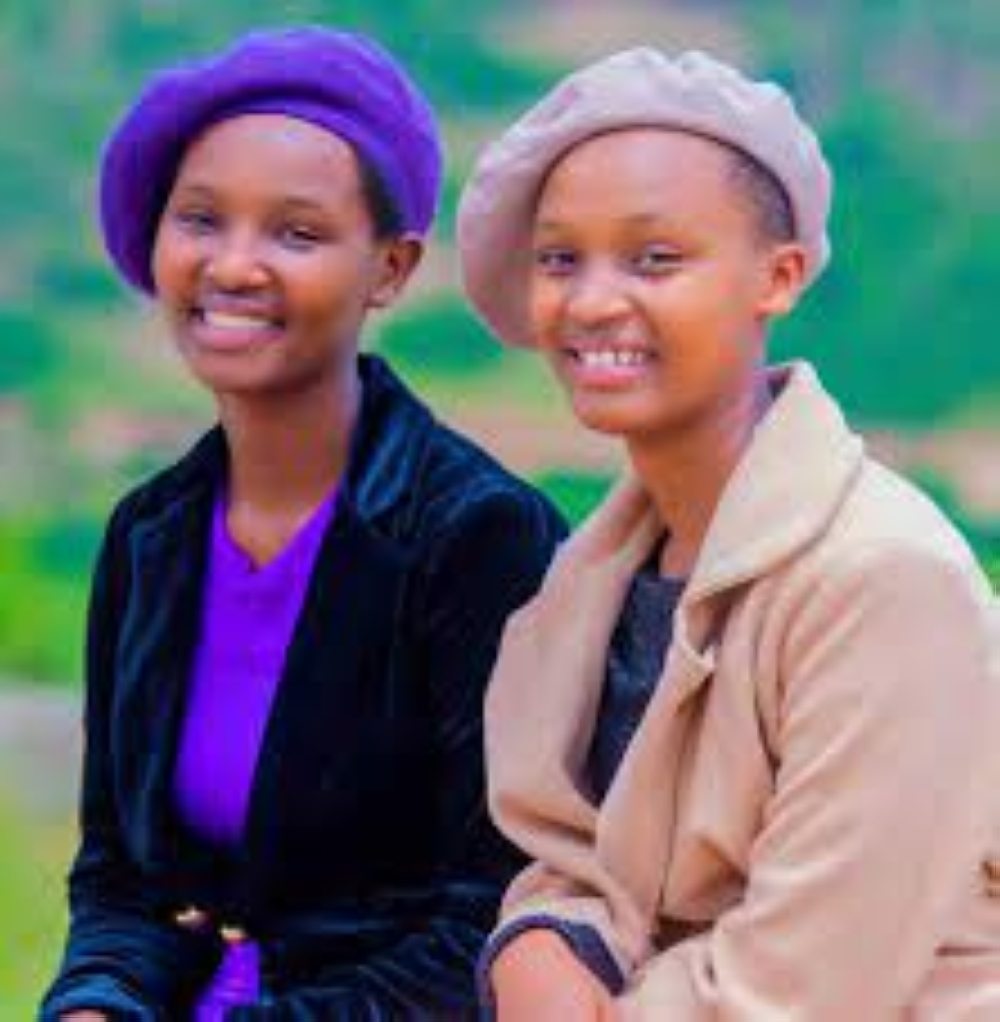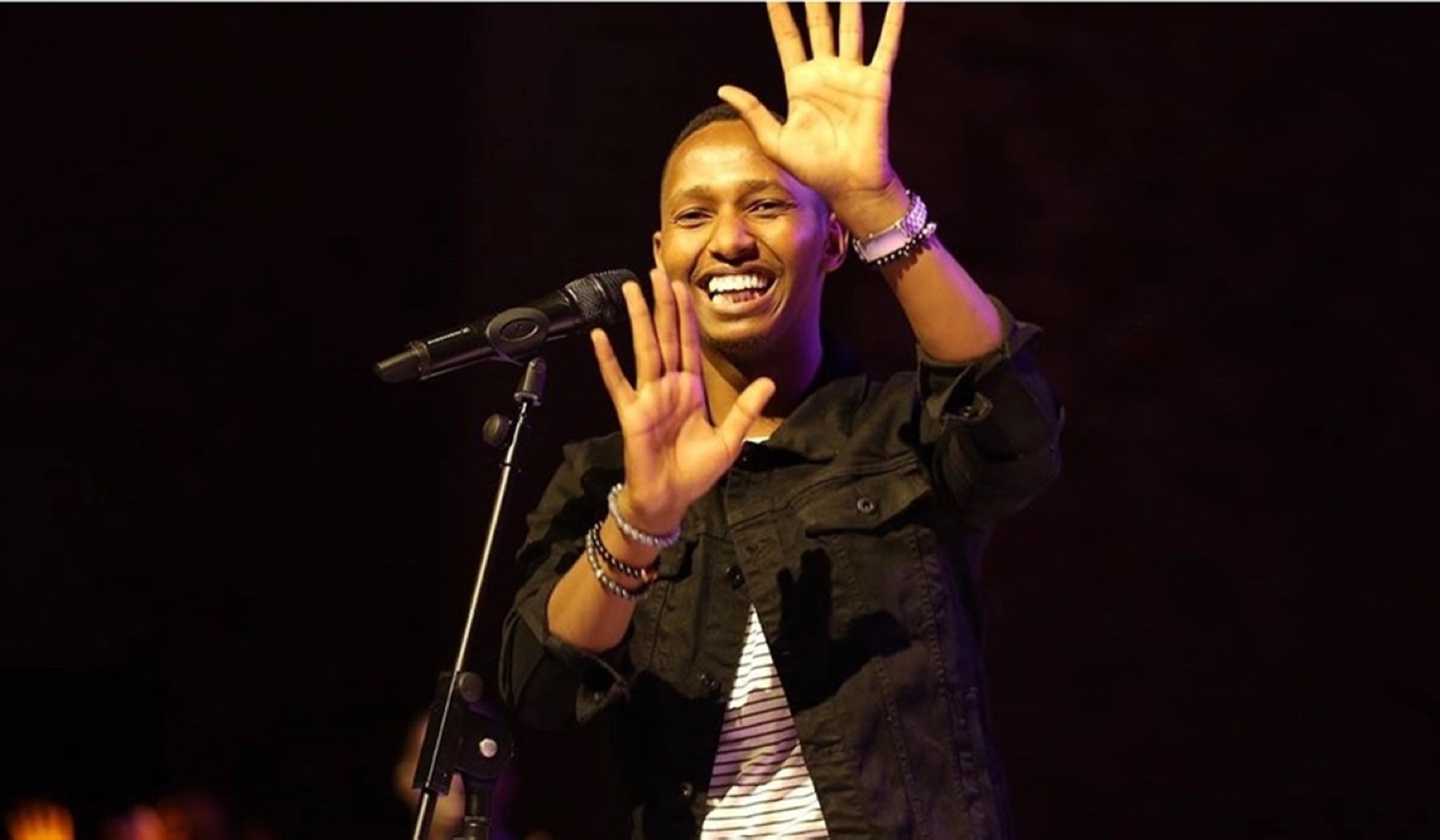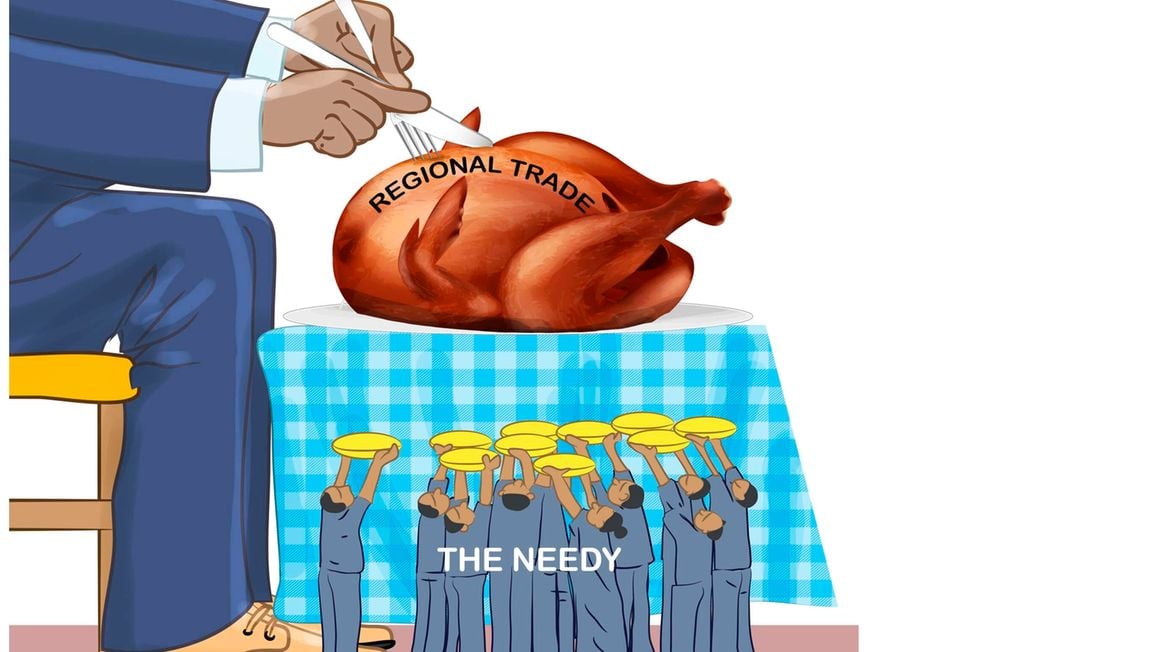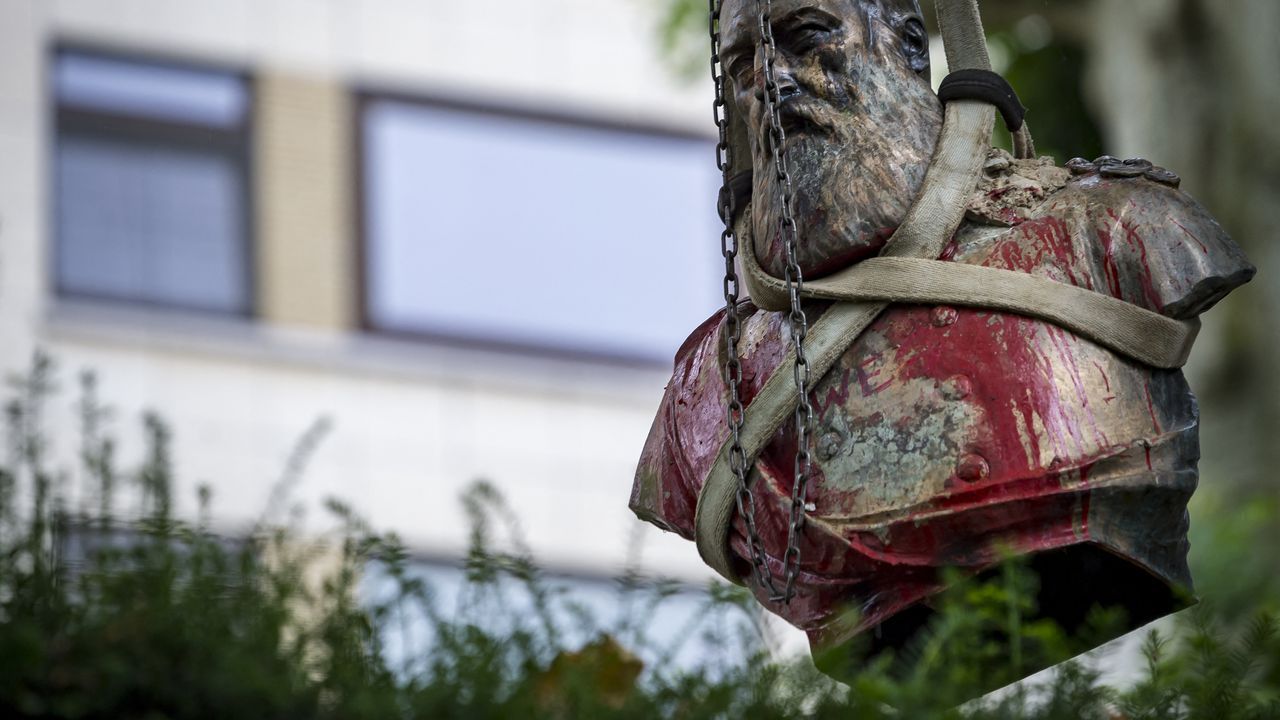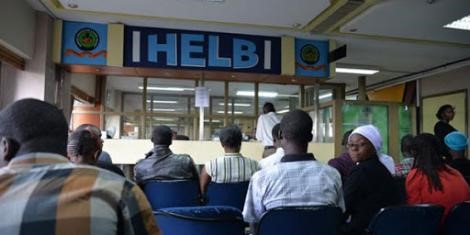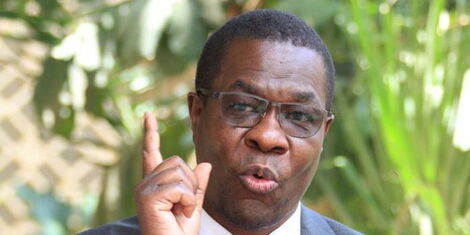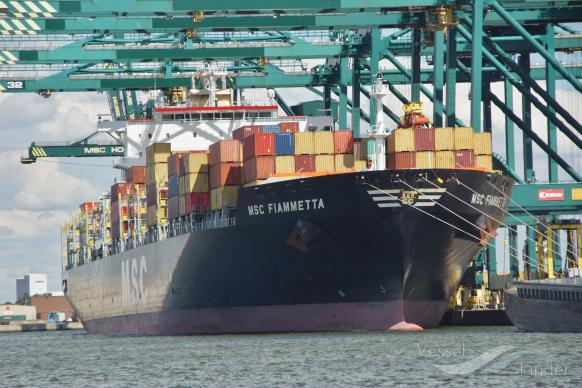The advantage of a country that is not as big as the Democratic Republic of Congo or Tanzania is that you can buzz around it quickly. In three days, we dashed from the Uganda-Kenya border, north to the Uganda-DRC border, and west to the Uganda-Rwanda border, taking in as much of the Northern Corridor as we could.
Making this journey is a study of how East Africa’s long-distance truckers have shaped the routes they have driven for decades. Many towns on the Northern Corridor were born because truckers stopped there to rest. Little restaurants, tiny bars, and a thriving commercial sex industry often followed.
There are also the small things, often overlooked, that come to be — especially when the sanguine practical-mindedness of the long-distance trucker collides with the fluidity of the border peoples.
Lwakhakha is a trading town at the Kenya-Ugandan border. In the 1970s and 1980s, it was famed as an uncontrollable free cross-border trade (to the powers that be, smuggling) town. In recent years, the Uganda government has poured money into quite a good road to the border, and it has grown into a significant border crossing for the trucks ferrying goods from Kenya to South Sudan and the northwest Democratic Republic of Congo and returning from there.
One will notice young men clutching plastic bags lined up on the left side of the street to the border crossing into Lwakhakha on the Uganda side. A rush will break out when a fuel tanker approaches. One lucky lad will jump onto the truck and sit on the toolbox or any perch he can find as it drives along. Quickly, he will siphon fuel from someplace — it seems the tank — and jump off just as the truck hits the borderline.
It looks like theft until you realise you are the only one paying attention to it. The truck driver is seemingly unconcerned, only hinting he’s aware of what’s going on by slowing a little bit. The townspeople don’t pay attention, and the police at the borderline act like they have seen nothing.
Another fuel tanker comes, another rush, and another, and another. After a while, each of the young men has several polythene bags full of fuel that they will sell to the boda boda (motorcycle taxis), local workshops, and generator owners.
What is happening is that the folks on the lower rungs of the East African Community food chain are feeding on the leftovers of regional trade. The trucks will have delivered fuel to depots and filling stations in Uganda, South Sudan, and DRC and are returning with remnants in their tanks. Additionally, now that they are nearing home, they can afford to donate a litre or two from their supply to the East Africans who have been consigned by economic difficulties to be bottom feeders.
There is an elaborate network built around these leftovers on the Northern Corridor. From the northern Ugandan city of Lira to the northwest city of Arua, which is near the DRC border, as you drive in, every now and then, you will catch a few jerrycans placed discreetly on the side left, which the valves of the returning fuel trucks will be facing.
The operation at Lwakhakha will be repeated several times, with everyone taking their turn to suck a few helpings of the fuel remnants, leaving some for the comrades ahead.
In this way, the crumbs that fall off the East African high table find their way into the stomachs of the thousands of folks who are invisible to the eating chiefs.
It’s a subset of a vast system, some of it not so benign. On the way to Arua is Pakwach town, nestled along the western bank of the Albert Nile. For reasons hard to fathom, in the first half of the 20th century, before independence, colonial borders became set in stone. Many Kenyan Luos migrated to Pakwach, forming one of their largest communities outside Kenya. Some say they came to fish. Others that they came to build roads and ferries.
Apparently, Pakwach is a blurry borderline that marks a happy zone for the East African car theft network. When a car is stolen from Tanzania or Kenya, and it enters Uganda, you can recover it — until it crosses Pakwach. When it does, kiss it goodbye. It is almost certain to disappear in a vast underground universe stretching from the Uganda borderlands and covering the sparsely governed extensive territories of DRC and South Sudan. A DRC or South Sudan plate will be slapped on it, and it crosses the borders, where it is again registered.
As the now deceased Eriya Kategaya, who was Uganda’s First Deputy Prime Minister and Minister for EAC Affairs, liked to say, East Africa’s thieves formed a federation years ago as the politicians were twiddling their thumbs over regional integration. In that northern Uganda-DRC-South Sudan axis, they have created a vortex where things mysteriously disappear.
Proximity has also led to local subversion. There are weekly battles in Arua as the police and Uganda Revenue Authority chase down unregistered or Congolese-registered boda bodas. In Bududa, a busy town inside Uganda not too far from Lwakhakha, there are many Kenyan-registered boda bodas. There, they no longer wage war against them. There is a parallel universe there, where borders don’t exist. It looks like the future of East Africa 25 years from now. Charles Onyango-Obbo is a journalist, writer, and curator of the «Wall of Great Africans» Twitter@cobbo3 By Charles Onyango-Obbo, East African
